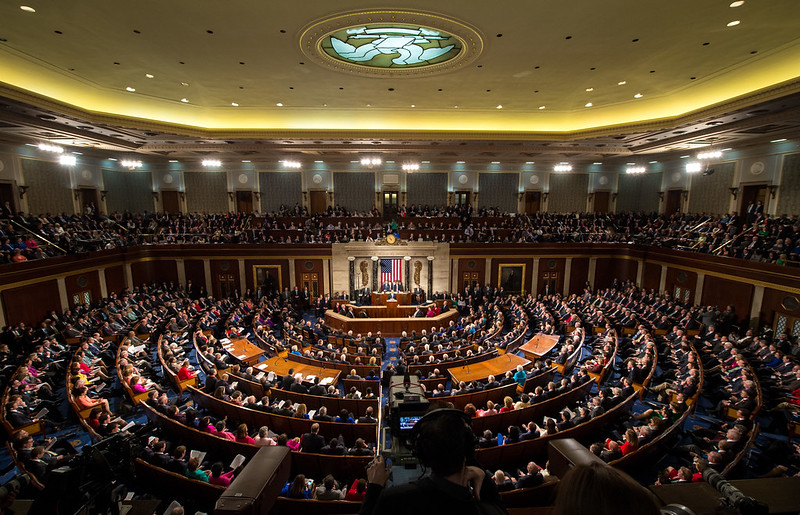
Americans for Tax Reform joined a coalition of 17 organizations led by the Council for Citizens Against Government Waste (CCAGW) and signed a letter urging Congress to reject the restoration of earmarks, which were banned in 2011. The groups urge Congress to oppose any proposal to restore earmarks.
Democrat lawmakers led by House Appropriations Committee Chair Rosa DeLauro (D-Conn.) and Senate Appropriations Committee Chairman Patrick Leahy (D-Vt.) are considering bringing back earmarks.
Earmarks are provisions inserted by members of Congress into large spending bills directing funds to be spent on specific projects or programs. Before their ban, funds would often be directed towards specific congressional districts, pressuring members into voting for legislation they wouldn’t normally vote for.
This facilitated the passage of unpopular, costly legislation filled with giveaways to lawmakers. It pushed members of Congress to vote not on the merits of the legislation, but because a small portion of the legislation would benefit their home district, a donor of theirs, or even themselves.
“Earmarks are the ‘broken windows’ of government overspending, the currency of Congressional corruption, and the price of bad votes for more spending,” said ATR President Grover Norquist. “Earmarks are used to buy the votes of congressmen who would never vote for the overall package standing alone, without a bribe.”
The most infamous example of an earmark leading to frivolous spending is the “Bridge to Nowhere,” a project which began in 2005 when some members of Congress from Alaska requested funding to build the Gravina Island Bridge in exchange for their votes. The bridge was going to connect the town of Ketchikan with a population under 9,000 to the Island of Gravina, an island with an airport and a population of 50. Despite the few number of residents and the availability of a ferry, taxpayers were going to fund the bridge for $320 million. While Congress put an end to this bridge project in 2015, other pork projects have been approved.
You can read the full letter here or below:
February 23, 2021
Dear Member of Congress,
On behalf of the undersigned organizations and our millions of members and supporters from across the country, we urge you to reject the proposed restoration of earmarks being considered by House Appropriations Committee Chair Rosa DeLauro (D-Conn.) and Senate Appropriations Committee Chairman Patrick Leahy (D-Vt.). Earmarks are one of the most corrupt, inequitable, and wasteful practices in the history of Congress. Dressing them up as “member-directed spending” will not change anything.
Since 1991, according to Citizens Against Government Waste’s Congressional Pig Book, there have been 111,417 earmarks costing taxpayers $375.7 billion, including $67.9 billion since the earmark moratorium was adopted in 2011. In 2006, one year after the 2005 highway bill had $24 billion in earmarks, including the infamous Bridge to Nowhere, appropriations earmarks totaled a record $29 billion. That was also the year Republicans lost the majority in the House of Representatives, followed soon thereafter by the incarceration of members of Congress, staff, and lobbyists as a result of the corruption associated with earmarks.
The inequitable and power-driven distribution of earmarks is demonstrated by the inclusion of the names of members of Congress who obtained earmarks in the appropriations bills during the 111th Congress. The 81 House and Senate appropriators, making up 15 percent of Congress, were responsible for 51 percent of the earmarks and 61 percent of the money. Proponents of earmarks argue that they would promote the passage of appropriations bills in a timely manner, but this is proven false by the fact that appropriations bills have been enacted on time in only four years since the passage of the 1974 Budget Act. In fact, they waste the taxpayers’ money as a form of “legalized bribery,” under which a few million dollars in earmarks are traded for votes in favor of hundreds of billions of dollars in spending. It makes no sense to believe that earmarks, which never constituted more than 1 percent of discretionary spending, would drive or control agreement on the remaining 99 percent of such spending.
Earmarks are a lazy, unfair, and corrupt way to circumvent the authorization and appropriations process. They are not a path to unity; they are a road to fiscal ruin for taxpayers.
The American people have made it clear they want business as usual to end in Washington. Earmarks for teapot museums, indoor rainforests, and bridges to nowhere should not be restored; they should be permanently banned.
Again, we urge you to be fiscally responsible and oppose any proposal to restore earmarks.
Sincerely,
Tom Schatz
President, Council for Citizens Against Government Waste
Grover Norquist
President, Americans for Tax Reform
Tim Phillips
President, Americans for Prosperity
Pete Sepp
President, National Taxpayers Union
David McIntosh
President, Club for Growth
Adam Brandon
President, FreedomWorks
Phil Kerpen
President, American Commitment
David Williams
President, Taxpayers Protection Alliance
Steve Ellis
Vice President, Taxpayers for Common Sense
Michael A. Needham
CEO, Heritage Action
George Landrith
President, Frontiers of Freedom
Saulius “Saul” Anuzis
President, 60 Plus Association
James L. Martin
Founder/Chairman, 60 Plus Association
Bethany Marcum
President, Alaska Policy Forum
Jeffrey Mazzella
President, Center for Individual Freedom
James Taylor
President, The Heartland Institute
Kevin Waterman
President, Annapolis Center-Right Coalition Meeting
Matthew Gagnon
President, The Maine Heritage Policy Center

